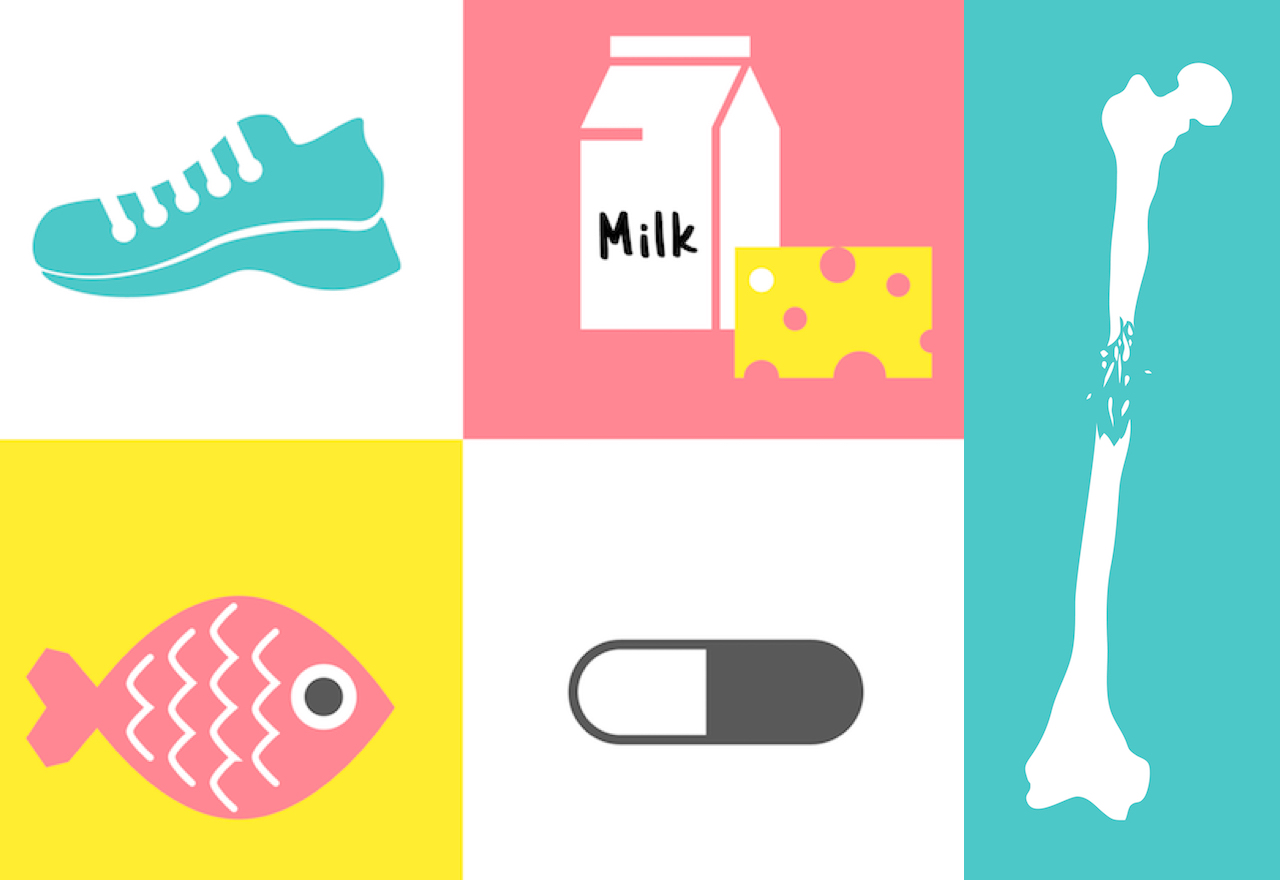Your bones live through a continuous cycle of growing and reshaping. Old bone cells get broken down, as new ones take their place. When osteoporosis strikes, the growing stops. This condition causes gradual bone loss. So, it’s important to protect your bones and be aware of the possible changes.
If you have weak and brittle bones, it means that there’s been a reduction in the quality, strength and density of your bones. The bone disease leads to “porous” bones (bones with holes). This results in an imbalance in the formation of your new bones and the removal of the old ones.
One in three women develop osteoporosis in South Africa, and it affects one in five men. This bone disease has no symptoms up until the first fracture happens. A fracture would normally take place in the hip, wrist and spine. Other bones are likely to break too.
Causes
A family history of bone fracture or bone loss puts you at a greater risk of developing the disease. Other risks include:
- Thyroid problems (thyroid hormones can cause bone loss).
- A reduction in testosterone and oestrogen levels.
- Overactive glands.
- Age, lifestyle and medical factors.
- Loss of height over time.
- An arched posture.
- Back pain caused by a fracture in the spine.
Prevent osteoporosis
- Load up on dairy. To build strong bones, drink milk to get a good source of calcium. Fortified milk products also have Vitamin D, which your body needs for calcium absorption.
- Eat fish. Sardines and salmon are rich in calcium. Tuna, mackerel and other oily fish are packed with Vitamin D.
- Leafy green vegetables are loaded with calcium, potassium and Vitamin K that you need to prevent calcium loss. Fill up your plate with kale, Swiss chard, broccoli and turnip greens. For a boost of potassium, eat a banana.
- Avoid excessive alcohol. Too much alcohol prevents your body from absorbing calcium properly. Ease up on the drinks; no more than one a day for women and two for men.
- Watch the salt: The more salt you eat the more calcium your body needs.
- Stop smoking. It’s not good for your bones, heart, lungs, skin and overall health.
- Work out. Just like muscle, bone is living tissue and it becomes stronger through exercise. Do weight-bearing exercises like, running, walking or skipping.
- Get tested. Bone-density tests are the only way to predict a fracture risk and get a diagnosis for osteoporosis. Women over the age of 65 should be scanned, as well as younger post-menopausal women and men with one or more osteoporosis risk factors.
- Check your height. Ask your doctor to measure your height every year. A loss of one or two centimetres could be a sign of undiagnosed fractures and osteoporosis.
- See a doctor. Talk to your doctor about conditions that can threaten the health of your bones and what you may need to do about it.

